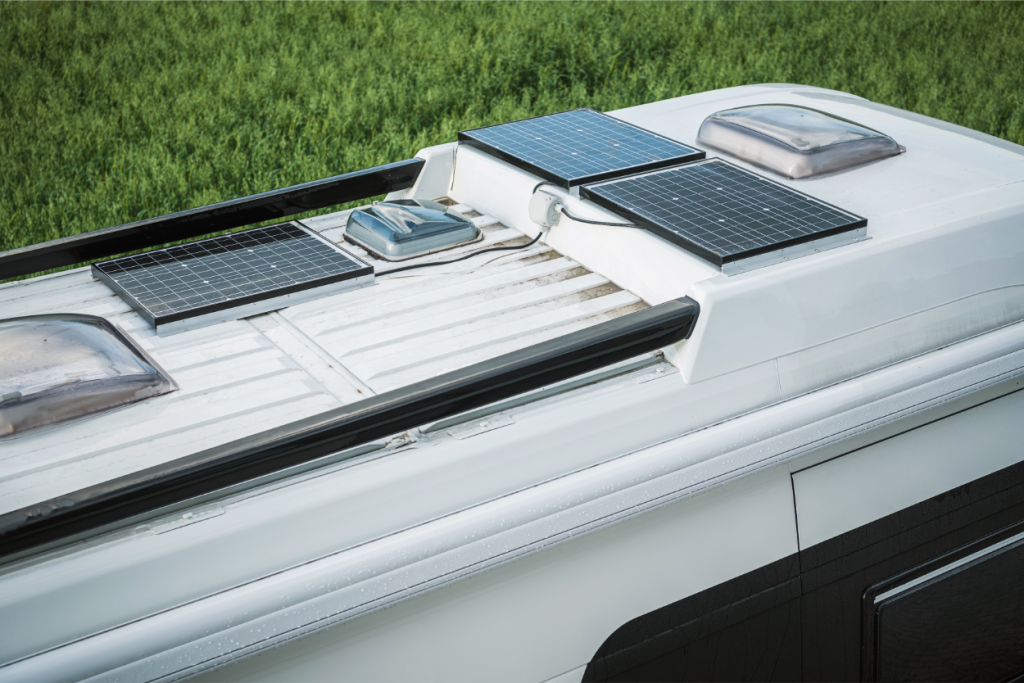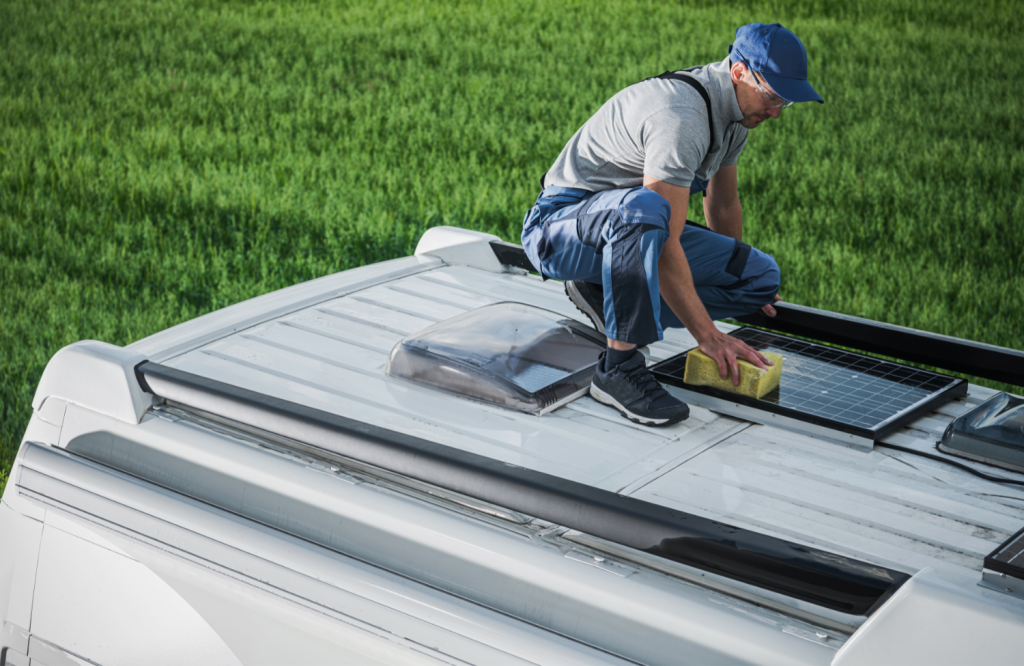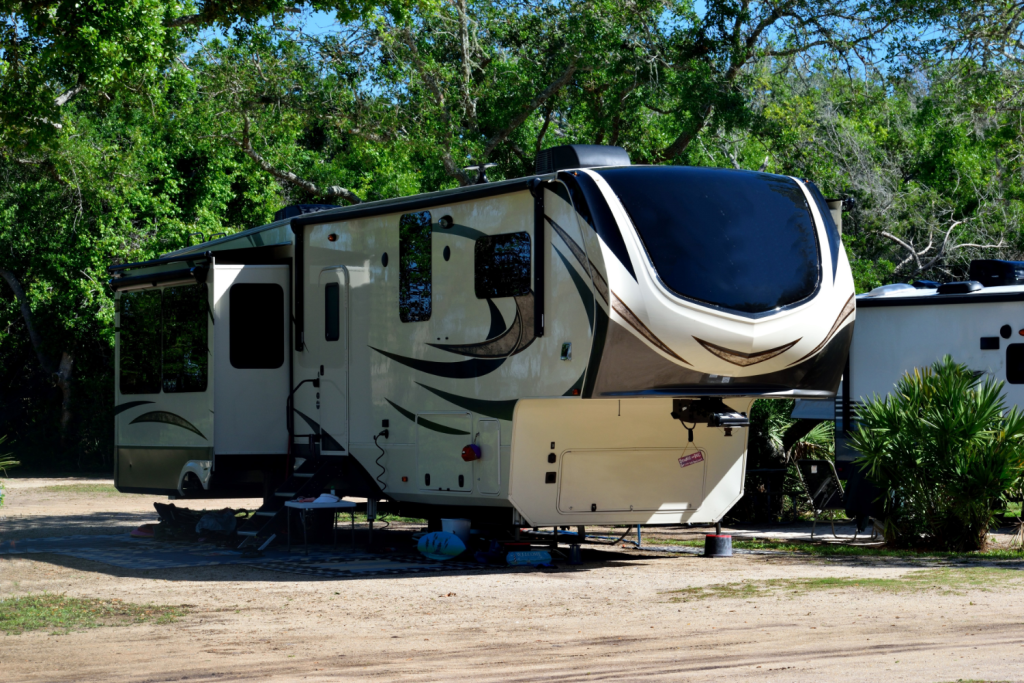
Are you wondering if your RV’s extended warranty covers roof leaks? Unraveling this mystery is crucial for every RV owner.
This article will delve into the basics of RV extended warranties, explore the common causes of roof leaks, and examine the standard coverage provided. But beware, there’s a gray area regarding roof leak coverage.
So, grab a cup of coffee and get ready to dive into the fine print of your warranty to uncover the truth.
The Basics of RV Extended Warranties
Are you aware of the benefits that RV extended warranties provide?
When protecting your investment in your RV, an extended warranty can offer you peace of mind and financial security. With an RV extended warranty, you can rest easy knowing that if something goes wrong with your vehicle, you won’t have to bear the burden of expensive repairs.
An extended warranty can cover various repairs, from engine and transmission issues to electrical and plumbing problems. Not only does it save you money, but it also saves you time and hassle. Instead of searching for a reliable repair shop and dealing with the logistics of fixing your RV, your extended warranty can take care of everything for you.
The Common Causes of RV Roof Leaks

Have you ever experienced a roof leak in your RV and wondered about the common causes and how to prevent them? Well, you’re not alone. RV roof leaks can be a frustrating and costly problem for many RV owners.
One of the most common causes of roof leaks is damage to the roof itself. This can be caused by falling branches, hailstorms, or even normal wear and tear over time.
Another common cause of roof leaks is improper sealing around vents, skylights, or other roof fixtures. If these areas aren’t sealed properly, water can seep in and cause leaks.
To prevent roof leaks, it’s important to regularly inspect your roof for any signs of damage or wear and ensure all roof fixtures are properly sealed. Keeping your RV’s roof clean and debris-free can help prevent damage and prolong its lifespan.
Standard Coverage of Extended Warranties
If you’re considering purchasing an extended warranty for your RV, it’s important to understand the standard coverage and what it includes.
With an extended warranty, you’ll have peace of mind knowing that certain repairs and maintenance will be covered, potentially saving you a significant amount of money in the long run.
Generally, extended warranties cover mechanical and electrical components like the engine, transmission, and appliances. However, it’s crucial to carefully review the terms and conditions of the warranty to ensure that it covers specific items you may be concerned about, such as roof leaks.
While some extended warranties may cover roof leaks, others may exclude them or have certain limitations. Therefore, it’s essential to thoroughly research and compare different warranty options to find the one that best suits your needs and provides the coverage you require.
Roof Leak Coverage: The Grey Area
Regarding roof leak coverage, it’s crucial to understand the grey area and how it may impact your extended warranty.
Many RV owners assume that their extended warranty will cover any roof leaks that may occur during the warranty period. However, this isn’t always the case. While some extended warranties provide roof leak coverage, others may have specific exclusions or limitations.
It’s important to carefully read the terms and conditions of your extended warranty to determine if roof leak coverage is included. Additionally, some warranties may require regular maintenance and inspections to maintain coverage.
Understanding the grey area surrounding roof leak coverage is essential to avoid disappointments or unexpected expenses.
The Importance of Reading the Fine Print

Reading the fine print is crucial to fully understand the terms and conditions of your extended warranty and avoid any potential surprises or misunderstandings.
Many people overlook the importance of reading the details regarding extended warranties. However, failing to do so can lead to unexpected problems.
By carefully reading and understanding the fine print, you can ensure you know any limitations or exclusions that may apply to your warranty coverage. This includes understanding what’s covered, what isn’t, and any specific requirements or conditions that must be met to make a claim.
Taking the time to read the fine print will help you make informed decisions and avoid any unpleasant surprises in the future.
Real-life Scenarios and Testimonials
Have you ever experienced unexpected issues with your RV warranty coverage, and if so, can you share any real-life scenarios or testimonials with us?
It’s always helpful to hear from others who’ve faced similar situations. Maybe you were on a road trip when your RV’s air conditioning suddenly broke down, leaving you sweltering in the summer heat. Or perhaps you discovered a leak in your RV’s roof during a heavy rainstorm, causing water damage inside.
These real-life scenarios can be frustrating and costly, especially if your warranty coverage excludes repairs for these issues. By sharing your experiences and testimonials, you can help fellow RV owners make informed decisions regarding their warranty coverage.
Alternatives and Add-ons
You can explore different alternatives and add-ons to enhance your RV warranty coverage.
When protecting your investment, it’s important to consider all the options available.
One alternative is purchasing an extended warranty covering specific RV components or systems. This can provide added peace of mind, knowing you’re protected against unexpected repairs.
Another option is adding tire and wheel protection coverage, roadside assistance, or even personal items inside your RV. These add-ons can provide extra protection and convenience while on the road.
It’s important to carefully review the terms and conditions of any alternative or add-on coverage to ensure that it meets your specific needs.
Tips for RV Roof Maintenance and Leak Prevention
Regularly inspect and clean your RV’s roof to prevent leaks and maintain its condition.
As an RV owner, it’s essential to prioritize roof maintenance to avoid costly repairs and water damage. Start by inspecting the roof for any signs of wear and tear, such as cracks, loose seams, or damaged caulking.
Regularly clean the roof to remove debris, leaves, and dirt that can clog the drainage system and cause water buildup. Use a mild detergent and a soft brush to gently scrub the roof’s surface.
Additionally, check the roof’s seals and vents to ensure they’re secure and in good condition.
Conclusion: Navigating the Complex World of RV Warranties
So, does an RV extended warranty cover roof leaks?
The answer isn’t always clear. While some warranties may include roof leak coverage, it often depends on the specific terms and conditions of the warranty.
It’s important to thoroughly read the fine print and understand what’s included in your warranty. Proper maintenance and prevention measures can also help reduce the risk of roof leaks in your RV.